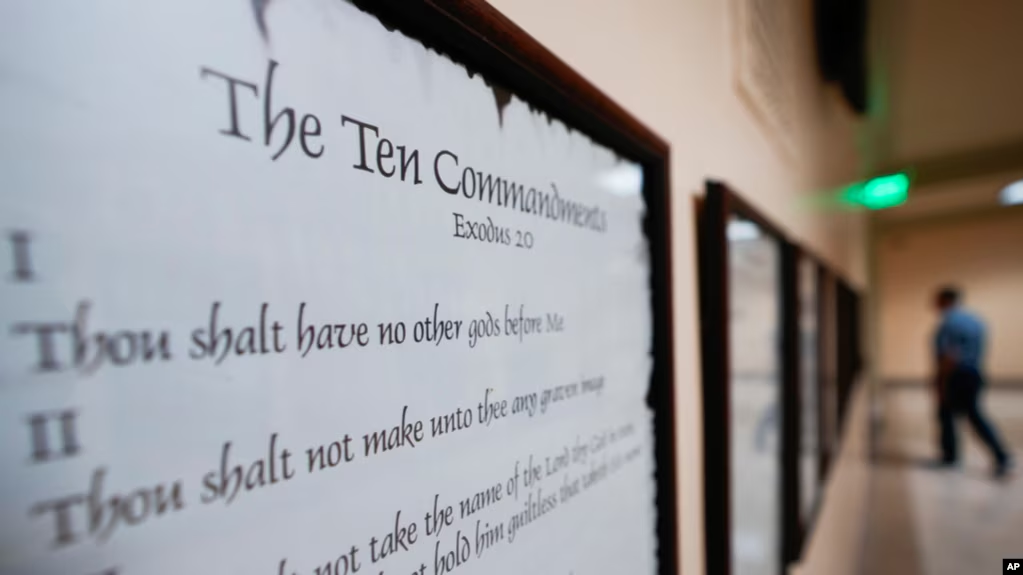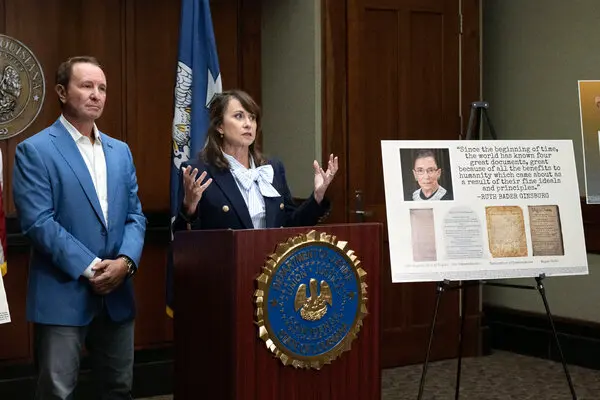A federal judge temporarily blocked a new Louisiana law Tuesday that would have required public schools to display the Ten Commandments in every classroom by January 1, ruling the measure “unconstitutional on its face.”

U.S. District Judge John W. deGravelles issued a preliminary injunction in response to a lawsuit filed by parents of Louisiana public school children, who argued the law violates First Amendment protections against government establishment of religion and guarantees of religious liberty.
The legislation, passed by Louisiana’s Republican-dominated Legislature, would have required poster-sized displays measuring at least 28 by 36 centimeters in all K-12 and state-funded university classrooms, accompanied by a four-paragraph statement describing the Ten Commandments’ role in American public education.
The ruling follows a 1980 U.S. Supreme Court precedent that struck down a similar Kentucky law for having “no secular purpose.” Louisiana proponents argue the displays hold historical significance to U.S. law rather than purely religious meaning, while opponents warn they would isolate non-Christian students.

The law represents part of a broader conservative push to incorporate religion into classrooms across the country. Similar initiatives include Florida’s allowance of volunteer chaplains in schools and Oklahoma’s directive to incorporate Bible lessons. Comparable Ten Commandments display laws proposed in Texas, Oklahoma, and Utah have faced legal challenges preventing implementation.
“This marks a win for opponents who argue that it is a violation of the separation of church and state,” said the judge, who noted plaintiffs are likely to prevail in their case. While the law specified schools could use donated displays rather than public funds, critics note tens of thousands of posters would be needed statewide.
The injunction comes as President-elect Donald Trump and other Republicans have voiced support for such measures, highlighting ongoing tension between religious expression in public schools and constitutional restrictions.



